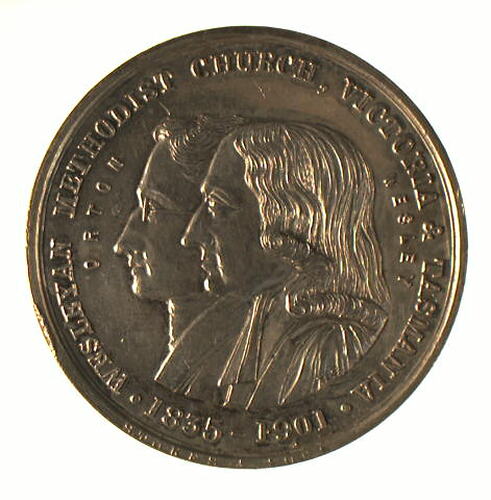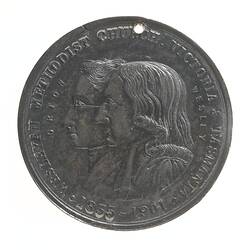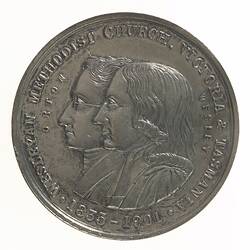Joseph Rennard Orton is credited with saving the Methodist church in Australia. He was born on 10 October 1795 at Hull, England. While working for a ship chandler in London he became active in Limehouse Wesleyan Chapel. In 1815, at the age of 20, he married Sarah Jane Bragg, and they set about having 12 children, four of whom died in infancy.
Orton was deeply religious, and entered the Wesleyan ministry in 1826. He was posted to Jamaica, where his violations of the restrictions imposed on missionary work among the slaves landed him in gaol. He was released, the case quashed and the local magistrate dismissed, but the terrible conditions of the gaol undermined his health and, ultimately, contributed to his death. To help him recuperate, in 1830 the Church sent him to Bury-St-Edmonds in Suffolk. The following year he was sent to Australia, where Methodism was struggling for lack of strong leadership.
Arriving in late 1831, Orton immediately set about bringing new order and life to the church. His assistants were spread far apart, from Parramatta to Hobart Town. He undertook extensive and hazardous travels to supervise the assistants. In 1832 he made the first of four journeys across the Blue Mountains to interior settlements, preaching along the route. He even preached to chain-gangs.
In 1833 the church added to his relentless load by instructing him to spend 10 weeks in New Zealand visiting mission stations. Methodism in Australia, meanwhile, continued to grow rapidly, and Van Dieman's Land was soon made a separate district, with Orton at Hobart as first chair. On 24 April 1836 he became the first clergyman to preach in Melbourne. The following year he was corresponding with hopeful Methodists in South Australia.
Orton was moved by the fate of Aborigines. In 1836 he wrote Aborigines in Australia, and pleaded with new settlers to respect the indigenous population. He asked Governor Gipps to grant land for a mission, and in 1839 visited Port Phillip to help establish the Buntingdale mission on the Barwon River. He also encouraged the fast-growing Wesleyan church in Melbourne.
Orton was recalled to England in 1839, but his departure was deferred indefinitely. He was sent to Tonga on a special mission but was stranded en route in New Zealand for several months before returning straight back to Australia. By the end of 1840 he was back in Melbourne, ministering to a congregation awaiting a permanent minister. He continued to champion the cause of Aborigines, preparing reports and protesting against travesties of justice. Orton finally set sail for England in 1842, but by then was very sick. He died at sea on 30 April. His family later returned to Australia.
References:
Australian Dictionary of Biography.
More Information
-
Keywords
-
Localities
-
Authors
-
Article types


